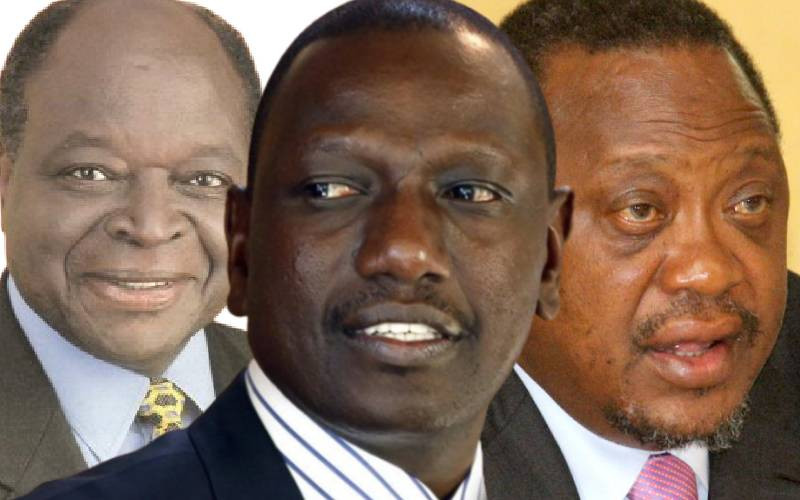NAIROBI: On Tuesday, President Uhuru Kenyatta presided over the 17th Biennial Conference of Ambassadors and High Commissioners in Kwale County where he exhorted them to market Kenya aggressively abroad.
This, he said, should be informed by values of integrity, professionalism and patriotism. At face value that could seem an easy task, but it is not.
The Jubilee-led Government strategy of adopting trade as opposed to diplomacy is hugely admirable.
Mr Kenyatta noted that travel advisories imposed on Kenya by some of our international allies last year following a string of attacks by the Somalia-based Al Shabaab group were hurting the economy.
Indeed, the advisories have had a negative effect on the economy which, to a larger extent, depends on tourism for its foreign exchange earnings.
The coastal towns of Mombasa, Kwale, Malindi and Lamu, which have for years been tourist magnets now face an economic meltdown. A few of the hotels are operating on half capacity.
Most have shut down as hotel rooms emptied.
Building strong bilateral ties is one of the surest ways through which the interests of Kenya, especially trade, can be advanced, and it is here that the envoys come in handy.
Growing the economy through enhanced exports will no doubt be good for wealth creation and opening up job opportunities.
But even as we demand this of ambassadors, the State must address factors that influence the confidence of investors.
Admittedly, security has been improved, though there still are pockets of attacks in Mandera from the Al-Shabaab militia that taint our image as a tourist haven and viable investment destination.
At an investors' conference last year, Mr Kenyatta assured investors his Government would address issues that stifle foreign direct investment, especially after the World Bank's ease of doing business index placed Kenya at position 136 globally.
He listed elimination of non-tariff barriers to make Kenya a low-cost investment destination and heavy investment in infrastructure.
But these are not enough to attract investors. Certain issues blot the image of Brand Kenya.
The canker of corruption is eating away the promise of Kenya.
Stay informed. Subscribe to our newsletter
When former British High Commission Sir Edward Clay addressed a group of British investors in 2004, he said corruption accounted for about 8 per cent of the country's GDP.
Going by the brazen nature of those on the take nearly 10 years later, that figure could be higher.
Sadly, Kenya has not moved away from the politics of exclusivity defined by the winner- takes-it-all mentality. Corruption feeds off this brand of politics.
As Sir Edward put it then, the gluttony of the corrupt has caused them "to vomit all over our shoes".
Kenya is increasingly becoming a country where lawmakers and leaders are perceived as incorrigibly corrupt and violent; where the ruling elite are above the law; where there is no equity in public appointments.
In truth, investors should not think twice before investing in Brand Kenya: Investors want to invest in a country where they stand no chance of losing their investment because the elite often bend the rules at will and rip them off their wealth; where business is dictated by the laws of supply and demand; where investors and citizens get value for their taxes; where there is no risk of a leader dipping his hand in the public purse.
Kenya does not fare very badly, but when the President repeatedly issues threats about corruption and nothing is done or when the bodyguards of a politician brandish guns at motorists in traffic jams or at a morgue, not even a silver-tongued envoy will erase the perception of a country tiptoeing to utter lawlessness; or where officials charged with maintaining standards look the other way as unscrupulous businessmen flood the market with counterfeit products; or where several man-hours are lost in incessant city gridlocks; or where opening a business takes you longer than in tiny Rwanda; or where legislators have a penchant for salary raises and spend a lot of time debating mundane subjects like what title to use for the spouse of a county governor.
For the envoys to market Kenya successfully, those with a stake in Brand Kenya must make it easy for our envoys. After all, 'Chema chajiuza, kibaya chajitembeza'.
Bearing the greatest responsibility for a battered image of Brand Kenya is the political class.
They don't seem to care as much. Sir Edward admires Kenyans for their "intelligence, work ethic, education, entrepreneurial and other skills".
Frankly speaking, there is little to show for all that investment.
And the buck stops with the CEO of Kenya Inc - Mr Uhuru Kenyatta.
 The Standard Group Plc is a
multi-media organization with investments in media platforms spanning newspaper
print operations, television, radio broadcasting, digital and online services. The
Standard Group is recognized as a leading multi-media house in Kenya with a key
influence in matters of national and international interest.
The Standard Group Plc is a
multi-media organization with investments in media platforms spanning newspaper
print operations, television, radio broadcasting, digital and online services. The
Standard Group is recognized as a leading multi-media house in Kenya with a key
influence in matters of national and international interest.
 The Standard Group Plc is a
multi-media organization with investments in media platforms spanning newspaper
print operations, television, radio broadcasting, digital and online services. The
Standard Group is recognized as a leading multi-media house in Kenya with a key
influence in matters of national and international interest.
The Standard Group Plc is a
multi-media organization with investments in media platforms spanning newspaper
print operations, television, radio broadcasting, digital and online services. The
Standard Group is recognized as a leading multi-media house in Kenya with a key
influence in matters of national and international interest.









